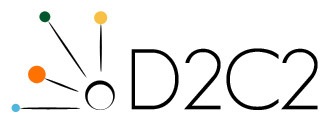Guidelines for Authors
Contents
- What is a Data Curation Profile?
- Why publish your Data Curation Profile?
- What is a publishable Data Curation Profile?
- What is the publication process?
- Withdrawing Profiles
- Rights for Authors
- General Terms and Conditions of Use
What is a Data Curation Profile?
A Data Curation Profile is the end product of a data interview conducted using the Data Curation Profile Toolkit from the site http://datacurationprofiles.org. A Completed Data Curation Profile should contain three elements:
- A description of the data set and information about the lifecycle of the data set. The lifecycle stages will vary based upon the nature and purpose of the data set but should include information about the following as appropriate:
- how the data were generated or acquired,
- how the data were processed or prepared for analysis,
- how the data were analyzed,
- the state of the data once the research is completed and results are disseminated
- Information about current practice and/or actions taken by the interviewee to manage, organize, share, curate, or preserve the data set.
- Indications of unmet needs or issues pertaining to managing, organizing, sharing, curating, or preserving the data set.
- The profile will be reviewed using the criteria in the “What is a publishable Data Curation Profile?” section of this document. A submission is first reviewed by an editor to check completeness of the DCP. It is then reviewed by a peer reviewer who is familiar with Data Curation Profiles project to provide additional feedback on the merits and value of the DCP. The review process takes approximately 3-5 weeks.
The standard version of the Data curation Profile contains 13 modules:
- Module 1: The Data Set (Core)
- Module 2: The Lifecycle of the Data Set (Core)
- Module 3: Sharing (Core)
- Module 4: Access (Optional)
- Module 5: Transfer of Data / Ingest into a Repository (Optional)
- Module 6: Organization and Description of Data (Core)
- Module 7: Discovery (Optional)
- Module 8: Intellectual Property (Optional)
- Module 9: Tools (Optional)
- Module 10: Linking / Interoperability (Optional)
- Module 11: Measuring Impact (Optional)
- Module 12: Data Management (Optional)
- Module 13: Data Preservation (Optional)
However, a data curation profile can be modified to suit the situation or the needs of the user. Modules identify as “optional” can be removed or replaced with modules developed locally. Individual questions within a module can be tweaked or replaced with questions developed locally.
Why publish your Data Curation Profile?
There are several reasons to share your Data Curation Profile with others, including:
- Sharing will help the library/information sciences field better understand the issues and needs in working with research data. Data curation has been identified as an important area for librarians and other information professionals to pursue, however there are few mechanisms available to inform where and how librarians could get involved at a practical level. Sharing your Profile with others provides real-world examples at the ground level that can help inform the directions of the library field, and shape the development of data services at individual libraries.
- Sharing is a means for you to gain recognition for your work in developing a Data Curation Profile.
- Sharing your Profile increases the visibility of your institution in an emerging area of importance in the library and information fields.
What is a publishable Data Curation Profile?
By design the Data Curation Profile Toolkit may be modified or re-appropriated for the purposes of the user. Modifications to the DCP Toolkit may lead to a different product than the standard Data Curation Profile described above. This is perfectly acceptable as the ability to modify the Data Curation Profile to address local needs is a part of its design.
In order to be considered for publication in the Data Curation Profile Directory, a Data Curation Profile must be complete. A Profile is deemed complete if it includes the three elements of a Profile:
- It describes a data set and its life cycle.
- It provides information about current practice.
- It identifies issues or potential areas of need.
Some sections of a complete profile may be more robust that others due to the questions asked by the interviewer or the responses given by the interviewee. This is to be expected and is permissible provided that the completed Profile satisfies the three conditions listed above.
Other criteria used to evaluate a completed Data Curation Profile for publication are:
- Is the Profile written sufficiently well for another librarian/information professional to understand the data set being described, the current practices surrounding the data, and the issues or potential needs expressed by the interviewee?
- Does the Profile provide sufficient information in the opening section to contextualize it? At minimum, information about the Profile’s author, important dates, the sources of information and any notes needed to understand the information the Profile contains must be provided. See the “Data Curation Profile – Cover Sheet” document for a full explanation of the cover sheet categories and definitions.
-
Does the Profile have a descriptive title? The final title of the Profile will follow the following protocol: "Discipline/Sub-Discipline." The “Discipline” component is required; the “Sub-discipline” component is optional but strongly recommended.
The Classification of Instructional Programs (CIP) taxonomic scheme produced by NCES should be used to determine the "discipline."
The CIP code taxonomy is structured as a two digit number, a decimal point, and then a two or a four digit number representing a particular field of study. For example, in the 2010 edition of the CIP 01 is the code for Agriculture, Agriculture Operations, and Related Sciences, 01.11 is the code for Plant Sciences, and 01.1102 is the code for Agronomy and Crop Science. For the purposes of the Data Curation Profiles, using any of the taxonomic classification levels for naming the “Discipline” is acceptable, though it is recommended that the Profile author select a specific subject over a more general subject.
"Sub-discipline" should represent the particular specialty of the interviewee, and is up to the Profile author and/or interviewee to determine.
Some examples of descriptive titles are:
- Agronomy and Crop Science / Soil Microbiology
- Civil Engineering / Structural Control
- Food Science / Human Cell Defense Systems
- The Profile author has secured permission from the interviewee to publish the Data Curation Profile that pertains to the interviewee and his/her data set. (Note: that the interviewee’s name will be removed from the completed Data Curation Profile as a part of the publication process, unless the interviewee him/herself indicates that their name should remain on the Profile after publication.)
What is the publication process?
There are several steps in the publication process for a completed Data Curation Profile on the Data Curation Profiles website.
- Be sure that your Profile meets all of the criteria described in the “What is a publishable Data Curation Profile?” section of this document.
- Ask the interviewee(s), whose information comprises the completed Profile, for their permission to publish it.
- Note: the interviewee’s name will be removed from the profile before publishing, but other information such as the discipline in which he/she practices are an integral part of the Profile and will not be removed.
- Submit your profile using the “Upload Profile” form available at: http://docs.lib.purdue.edu/dcp/. The submitted Data Curation Profile should be formatted in MS Word or RTF.
-
As a part of the submission process, you will be asked to read and agree to the following license agreement:
I hereby grant to Purdue University a non-exclusive perpetual royalty free license to use, duplicate and distribute the work (“Work”) in whole or in part. The Work is to be posted on the Data Curation Profiles Directory and the Data Curation Profiles website: http://datacurationproflies.org. I further grant to Purdue University the right to transfer the Work to any format or medium now known or later developed for preservation and access in accordance with this agreement. This agreement does not represent a transfer of copyright to Purdue University.
I represent and warrant to Purdue University that the Work is my original work and does not, to the best of my knowledge, infringe or violate any rights of others nor does the deposit violate any applicable laws. I further represent and warrant that I have the authority and/or have obtained all necessary rights to permit Purdue University to use, duplicate and distribute the Work and that any third-party owned content is clearly identified and acknowledged within the Work.
By granting this non-exclusive license, I acknowledge that I have read and agreed to the terms of this agreement and all related Purdue University policies.
This agreement is needed for Purdue University to provide access to and administer the collection of Data Curation Profiles. The agreement does not transfer copyright to Purdue University and authors are free to make use of their work as they see fit.
- The profile will then be reviewed using the criteria in the “What is a publishable Data Curation Profile?” section of this document.
- Once the review is finished the submitter will be informed of the decision made. There are three possible decisions:
- Accept for publication as is
- Accept for publication after revisions are made
- Decline for publication
The default license for a Data Curation Profile is Creative Commons Attribution 3.0 (CC BY 3.0). The terms of this license permit others to share the Profile (to copy, distribute, and transmit it), as well as to remix the Profile (to adapt it), provided that attribution is given to the author of the Profile.
Although it is strongly recommended that authors of Data Curation Profiles make use of the Creative Commons Attribution 3.0 (CC BY 3.0) in publishing their Profile to encourage its dissemination and use, authors may elect to employ a different license to their profile. This decision should be conveyed to the publisher by the author when the Profile is accepted for publication. The Purdue University Libraries reserves the right to reject Profiles for publication with license terms that would restrict access and/or use of the Profile, or that conflict with the submission agreement listed in step #3.
A list of other Creative Commons licenses is available on their website: http://creativecommons.org/licenses
- Once the agreement is accepted, Purdue will reformat the Profile into pdf and publish it on the Data Curation Profiles website.
This journal does not require author processing charges or other publication fees.
Withdrawing Profiles
Authors may request that their Profiles be removed from the Data Curation Profiles website. Once a Profile is placed on the website, however, a reference or marker to the document will always remain. The administrators of the Data Curation Profiles website reserve the right to remove material that is found to not meet the content guidelines and, conversely, the right to decline to remove material.
General Terms and Conditions of Use
Users of the the Purdue e-Pubs service which hosts this publication and/or the related software agree not to misuse either service or software in any way.
The failure of Purdue e-Pubs to exercise or enforce any right or provision in the policies or the Submission Agreement does not constitute a waiver of such right or provision. If any term of the Submission Agreement or these policies is found to be invalid, the parties nevertheless agree that the court should endeavor to give effect to the parties' intentions as reflected in the provision, and the other provisions of the Submission Agreement and these policies remain in full force and effect. These policies and the Submission Agreement constitute the entire agreement between Purdue University and the Author(s) regarding submission of the Article.


